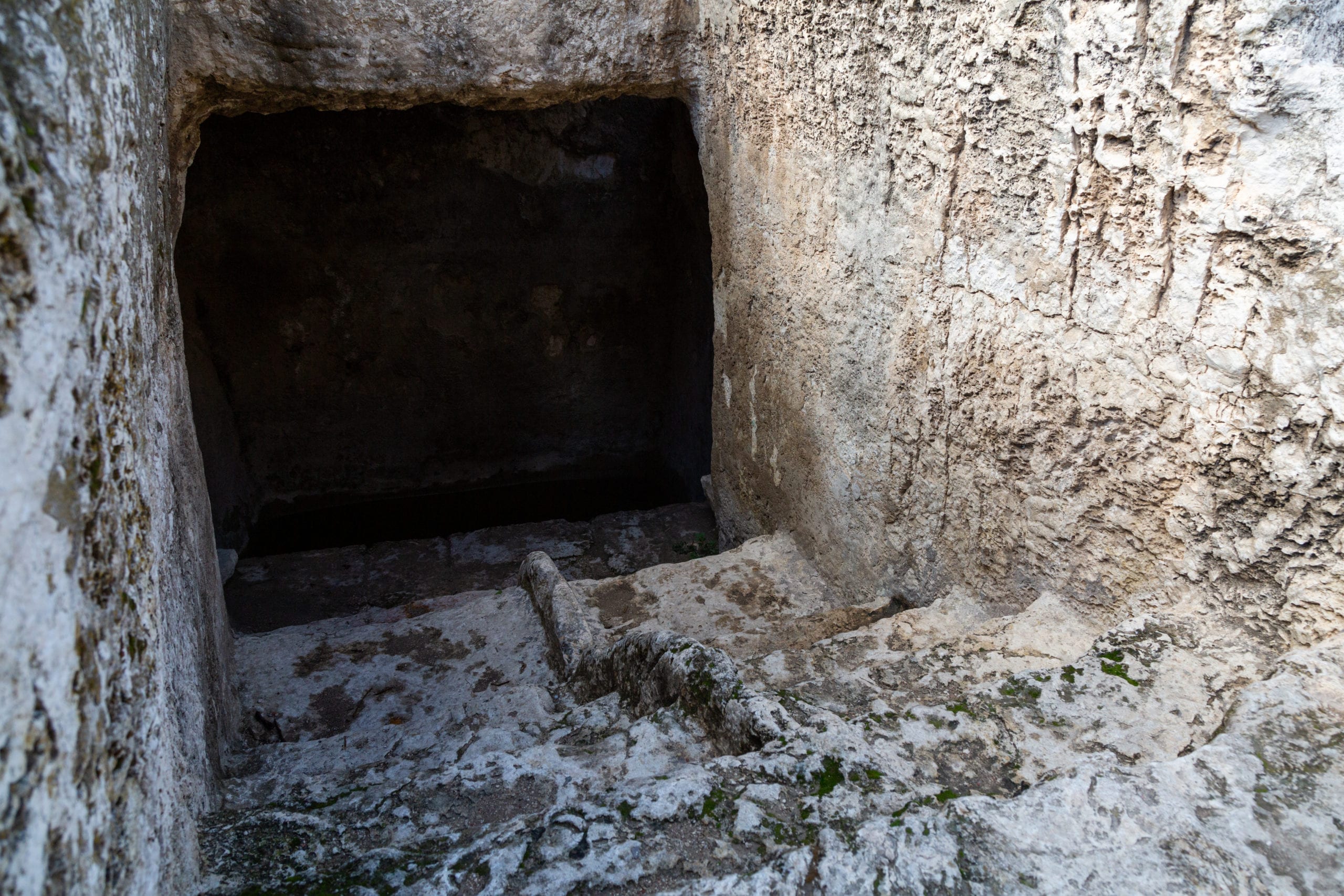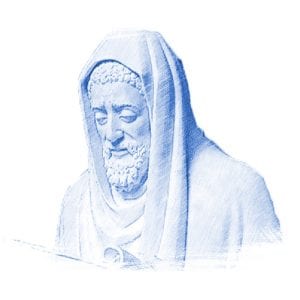
TORAH
NEVI'IM
KETUVIM
undefined - Chapter 9
Translation and Transliteration of undefined - Chapter 9
Listen to this chapter in Hebrew:
Audio Player- Commentary
- Buy E-book
- Buy the Israel Bible
1When this was over, the officers approached me, saying, “The people of Yisrael and the Kohanim and Leviim have not separated themselves from the peoples of the land whose abhorrent practices are like those of the Canaanites, the Hittites, the Perizzites, the Jebusites, the Ammonites, the Moabites, the Egyptians, and the Amorites.
אוּכְכַלּוֹת אֵלֶּה נִגְּשׁוּ אֵלַי הַשָּׂרִים לֵאמֹר לֹא־נִבְדְּלוּ הָעָם יִשְׂרָאֵל וְהַכֹּהֲנִים וְהַלְוִיִּם מֵעַמֵּי הָאֲרָצוֹת כְּתוֹעֲבֹתֵיהֶם לַכְּנַעֲנִי הַחִתִּי הַפְּרִזִּי הַיְבוּסִי הָעַמֹּנִי הַמֹּאָבִי הַמִּצְרִי וְהָאֱמֹרִי׃
2They have taken their daughters as wives for themselves and for their sons, so that the holy seed has become intermingled with the peoples of the land; and it is the officers and prefects who have taken the lead in this trespass.”
בכִּי־נָשְׂאוּ מִבְּנֹתֵיהֶם לָהֶם וְלִבְנֵיהֶם וְהִתְעָרְבוּ זֶרַע הַקֹּדֶשׁ בְּעַמֵּי הָאֲרָצוֹת וְיַד הַשָּׂרִים וְהַסְּגָנִים הָיְתָה בַּמַּעַל הַזֶּה רִאשׁוֹנָה׃
3When I heard this, I rent my garment and robe, I tore hair out of my head and beard, and I sat desolate.
גוּכְשָׁמְעִי אֶת־הַדָּבָר הַזֶּה קָרַעְתִּי אֶת־בִּגְדִי וּמְעִילִי וָאֶמְרְטָה מִשְּׂעַר רֹאשִׁי וּזְקָנִי וָאֵשְׁבָה מְשׁוֹמֵם׃
4Around me gathered all who were concerned over the words of the God of Yisrael because of the returning exiles' trespass, while I sat desolate until the evening offering.
דוְאֵלַי יֵאָסְפוּ כֹּל חָרֵד בְּדִבְרֵי אֱלֹהֵי־יִשְׂרָאֵל עַל מַעַל הַגּוֹלָה וַאֲנִי יֹשֵׁב מְשׁוֹמֵם עַד לְמִנְחַת הָעָרֶב׃
5At the time of the evening offering I ended my self-affliction; still in my torn garment and robe, I got down on my knees and spread out my hands to Hashem my God,
הוּבְמִנְחַת הָעֶרֶב קַמְתִּי מִתַּעֲנִיתִי וּבְקָרְעִי בִגְדִי וּמְעִילִי וָאֶכְרְעָה עַל־בִּרְכַּי וָאֶפְרְשָׂה כַפַּי אֶל־יְהֹוָה אֱלֹהָי׃
6and said, “O my God, I am too ashamed and mortified to lift my face to You, O my God, for our iniquities are overwhelming and our guilt has grown high as heaven.
ווָאֹמְרָה אֱלֹהַי בֹּשְׁתִּי וְנִכְלַמְתִּי לְהָרִים אֱלֹהַי פָּנַי אֵלֶיךָ כִּי עֲוׂנֹתֵינוּ רָבוּ לְמַעְלָה רֹּאשׁ וְאַשְׁמָתֵנוּ גָדְלָה עַד לַשָּׁמָיִם׃
7From the time of our fathers to this very day we have been deep in guilt. Because of our iniquities, we, our kings, and our Kohanim have been handed over to foreign kings, to the sword, to captivity, to pillage, and to humiliation, as is now the case.
זמִימֵי אֲבֹתֵינוּ אֲנַחְנוּ בְּאַשְׁמָה גְדֹלָה עַד הַיּוֹם הַזֶּה וּבַעֲוׂנֹתֵינוּ נִתַּנּוּ אֲנַחְנוּ מְלָכֵינוּ כֹהֲנֵינוּ בְּיַד מַלְכֵי הָאֲרָצוֹת בַּחֶרֶב בַּשְּׁבִי וּבַבִּזָּה וּבְבֹשֶׁת פָּנִים כְּהַיּוֹם הַזֶּה׃
8“But now, for a short while, there has been a reprieve from Hashem our God, who has granted us a surviving remnant and given us a stake in His holy place; our God has restored the luster to our eyes and furnished us with a little sustenance in our bondage.
v'-a-TAH kim-at RE-ga ha-y'-TAH t'-khi-NAH may-AYT a-do-NAI e-lo-HAY-nu l'-hash-EER LA-nu p'-lay-TAH v'-la-tet LA-nu ya-TAYD bim-KOM kod-SHO l'-ha-EER ay-NAY-nu e-lo-HAY-nu ul-ti-TAY-nu mikh-YAH m'-AT b'-av-du-TAY-nu
חוְעַתָּה כִּמְעַט־רֶגַע הָיְתָה תְחִנָּה מֵאֵת יְהֹוָה אֱלֹהֵינוּ לְהַשְׁאִיר לָנוּ פְּלֵיטָה וְלָתֶת־לָנוּ יָתֵד בִּמְקוֹם קָדְשׁוֹ לְהָאִיר עֵינֵינוּ אֱלֹהֵינוּ וּלְתִתֵּנוּ מִחְיָה מְעַט בְּעַבְדֻתֵנוּ׃
![]() 9:8 A Surviving Remnant
9:8 A Surviving Remnant

Rabbi Judah Halevi (1075-1141)
In his admonition of the people who have returned to the Land of Israel only to abandon Hashem and intermarry with local women, Ezra praises God for providing them a reprieve from the years of exile and persecution. He thanks Hashem for causing the king of Persia to look favorably upon His people, and for the remnant of the nation that survived. However, even though Cyrus had granted permission to those who survived the destruction and exile, the “surviving remnant,” to return home and reconstruct the Beit Hamikdash, a mere 42,360 people heeded the initial call to return and rebuild (Ezra 2:64). In just a short time, the Jews had become accustomed to living in exile, and had embraced its lifestyle. As Rabbi Yehuda Halevi writes in his work The Kuzari: “In reality, however, only a small portion returned. The majority remained in Bavel, willfully accepting the exile, as they did not wish to leave their homes and businesses…” This is no less true in our own day and age. Jews have become very comfortable living in the Diaspora, yet they must take heed of Ezra’s stirring words to recognize the kindness Hashem has done for His people and return with their families to Eretz Yisrael.
9For bondsmen we are, though even in our bondage Hashem has not forsaken us, but has disposed the king of Persia favorably toward us, to furnish us with sustenance and to raise again the House of our God, repairing its ruins and giving us a hold in Yehuda and Yerushalayim.
טכִּי־עֲבָדִים אֲנַחְנוּ וּבְעַבְדֻתֵנוּ לֹא עֲזָבָנוּ אֱלֹהֵינוּ וַיַּט־עָלֵינוּ חֶסֶד לִפְנֵי מַלְכֵי פָרַס לָתֶת־לָנוּ מִחְיָה לְרוֹמֵם אֶת־בֵּית אֱלֹהֵינוּ וּלְהַעֲמִיד אֶת־חָרְבֹתָיו וְלָתֶת־לָנוּ גָדֵר בִּיהוּדָה וּבִירוּשָׁלָ ִם׃
10“Now, what can we say in the face of this, O our God, for we have forsaken Your commandments,
יוְעַתָּה מַה־נֹּאמַר אֱלֹהֵינוּ אַחֲרֵי־זֹאת כִּי עָזַבְנוּ מִצְוׂתֶיךָ׃
11which You gave us through Your servants the Neviim when You said, ‘The land that you are about to possess is a land unclean through the uncleanness of the peoples of the land, through their abhorrent practices with which they, in their impurity, have filled it from one end to the other.
יאאֲשֶׁר צִוִּיתָ בְּיַד עֲבָדֶיךָ הַנְּבִיאִים לֵאמֹר הָאָרֶץ אֲשֶׁר אַתֶּם בָּאִים לְרִשְׁתָּהּ אֶרֶץ נִדָּה הִיא בְּנִדַּת עַמֵּי הָאֲרָצוֹת בְּתוֹעֲבֹתֵיהֶם אֲשֶׁר מִלְאוּהָ מִפֶּה אֶל־פֶּה בְּטֻמְאָתָם׃
12Now then, do not give your daughters in marriage to their sons or let their daughters marry your sons; do nothing for their well-being or advantage, then you will be strong and enjoy the bounty of the land and bequeath it to your children forever.'
יבוְעַתָּה בְּנוֹתֵיכֶם אַל־תִּתְּנוּ לִבְנֵיהֶם וּבְנֹתֵיהֶם אַל־תִּשְׂאוּ לִבְנֵיכֶם וְלֹא־תִדְרְשׁוּ שְׁלֹמָם וְטוֹבָתָם עַד־עוֹלָם לְמַעַן תֶּחֶזְקוּ וַאֲכַלְתֶּם אֶת־טוּב הָאָרֶץ וְהוֹרַשְׁתֶּם לִבְנֵיכֶם עַד־עוֹלָם׃
13After all that has happened to us because of our evil deeds and our deep guilt—though You, our God, have been forbearing, [punishing us] less than our iniquity [deserves] in that You have granted us such a remnant as this—
יגוְאַחֲרֵי כָּל־הַבָּא עָלֵינוּ בְּמַעֲשֵׂינוּ הָרָעִים וּבְאַשְׁמָתֵנוּ הַגְּדֹלָה כִּי אַתָּה אֱלֹהֵינוּ חָשַׂכְתָּ לְמַטָּה מֵעֲוׂנֵנוּ וְנָתַתָּה לָּנוּ פְּלֵיטָה כָּזֹאת׃
14shall we once again violate Your commandments by intermarrying with these peoples who follow such abhorrent practices? Will You not rage against us till we are destroyed without remnant or survivor?
ידהֲנָשׁוּב לְהָפֵר מִצְוׂתֶיךָ וּלְהִתְחַתֵּן בְּעַמֵּי הַתֹּעֵבוֹת הָאֵלֶּה הֲלוֹא תֶאֱנַף־בָּנוּ עַד־כַּלֵּה לְאֵין שְׁאֵרִית וּפְלֵיטָה׃
15Hashem, God of Yisrael, You are benevolent, for we have survived as a remnant, as is now the case. We stand before You in all our guilt, for we cannot face You on this account.”
טויְהֹוָה אֱלֹהֵי יִשְׂרָאֵל צַדִּיק אַתָּה כִּי־נִשְׁאַרְנוּ פְלֵיטָה כְּהַיּוֹם הַזֶּה הִנְנוּ לְפָנֶיךָ בְּאַשְׁמָתֵינוּ כִּי אֵין לַעֲמוֹד לְפָנֶיךָ עַל־זֹאת׃






